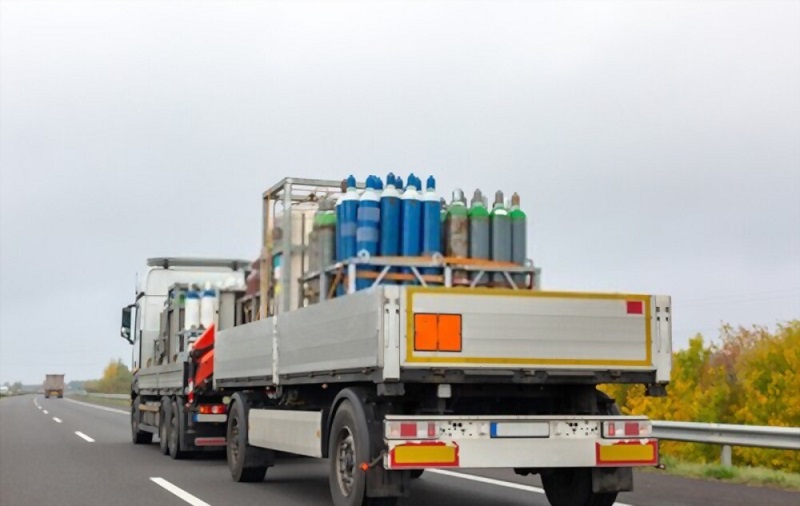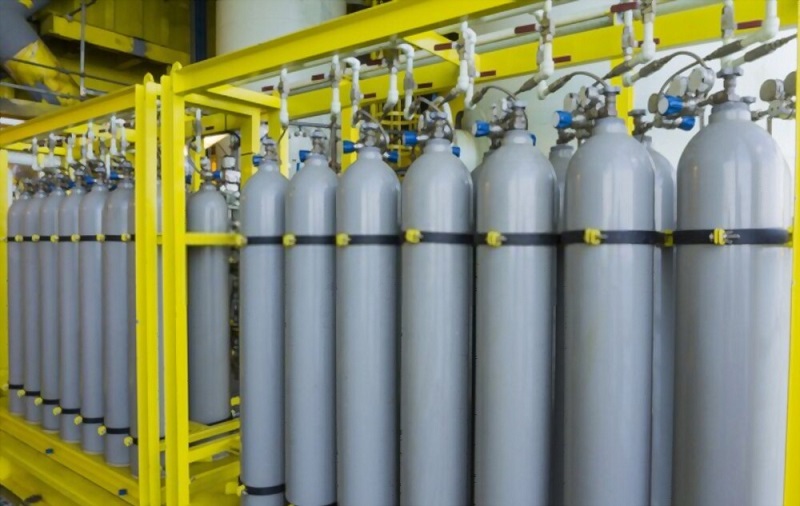One of the most vital uses of gas cylinders is in the industrial sector. Various industries like welding firms, cutting firms, machine repair centres and a lot more manufacturing companies use industrial gas cylinders on a large scale. However, despite its large-scale usage, you should never neglect the safety measures that you should take against industrial gas cylinders. The compressed gas is very much combustible and thus, can cause severe explosions and leakage accidents at any time.
Are you using an industrial gas cylinder for your industrial purpose? If yes, it is vital for you to know what things you can do and what you cannot do. To help you out, here are some dos and don'ts when using these cylinders for your industrial purposes.

Some of the Dos of handling industrial gas cylinders are as follows:
The foremost thing you need to ensure is to store the cylinder in an upright position at a secured place.
You should use a T-handle wrench or a valve wheel to open the protective valves of the industrial gas cylinder. You should keep the valve cap untapped when the industrial gas cylinder is not in use.
- If the cylinder is finished, you can mark the cylinder empty for your own convenience to avoid any confusion.
- Keep grease and oily substances away from the cylinders, as these things can ignite spontaneously.
- Keep fuel and oxygen gas cylinders around twenty feet away from the industrial gas cylinders.
- If you ever feel like moving the gas cylinders from one place to another, then you need to take help from a co-worker, or family member or use a hand truck for serving the purpose.
- For unloading, industrial gas cylinders make use of a ramp or soft pad.
- You need to make sure that you periodically inspect the cylinder, the valves, and the pipe to see if there are any signs of crack or wear and tear.
- If there is any cylinder with leakage, you need to ensure to take it away from the property. Take it to a safe place.
- Wherever you store these cylinders, you need to have a no-smoking sign to avoid any kind of mishap due to fire breakouts in your industry.
- You need to store these cylinders in a place where it does not get affected by adverse weather conditions.
- These are some of the things that you need to do before, during, and after the use of the gas cylinders.
Some of the Donts of handling industrial gas cylinders are as follows:
You should not shift or transport the cylinder without putting on the safety cap.
- Avoid dropping or hitting the cylinder while transporting or handling.
- You must never slide or roll the cylinders for transferring it from one place to another, even if you want to move it a short distance. Such sudden movements might affect the inner content of the industrial gas cylinder and ultimately enhance the risks of explosion.
- Never lift the cylinder through the nozzle valve. It can lead to accidental discharge of the gas from the cylinder.
- Never use grease or oil for lubricating the valves or nozzle.
- Do not keep the industrial gas cylinder under direct exposure to sunlight as it might expand the compressed gas and cause terrible accidents which might harm you as well as your family members.
- Make sure you do not apply force to connecting the cylinder that is not fitting well.
- Never use a hammer over the cylinder valve.
- You must never remove the original hazard label that comes with all the cylinders.
- Don’t use cracked tubes with the cylinders.
- These are some of the things you must not do when handling gas cylinders for industrial purposes.

Conclusion:
Gas cylinders used for industrial purposes are very heavy in weight, and when you try to handle or transport them without proper tools or experts, it can lead to sprains, fractures, bruises, etc in your body. It refers that industrial gas cylinders if not handled in the right manner, can pose a great risk for humans and property. For this reason, it is recommended that it must be handled by a qualified expert. These experts know the consequences of manhandling these cylinders.
